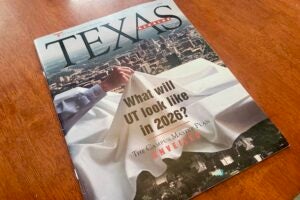New data from the National Science Foundation for fiscal year 2021 shows that The University of Texas at Austin is No. 1 in Texas and among the top 10 universities in the country for research awards that are financially supported by the NSF. The university had NSF research awards totaling more than $115 million, topping other institutions such as University of California-Berkeley, Texas A&M University and the University of Michigan. Overall, the state of Texas ranks No. 4 in the nation for total research and development performance behind California, Washington and Massachusetts, based on the most current National Center for Science and Engineering Statistics data.
“The NSF’s strong, continued investments underscore UT’s national leadership in pursuing research and development that transform society,” said UT Austin President Jay Hartzell. “These funds, combined with the investments made by our state and university, allow our exceptional talent to shape a brighter future while also strengthening Texas today.”
Examples of research paid for with NSF funding are all over the UT Austin campus. The NSF designated the university as a National Artificial Intelligence Institute and established the Institute for Foundations of Machine Learning. An interdisciplinary hub, the institute focuses on major theoretical challenges in artificial intelligence, including next-generation algorithms for deep learning, neural architecture optimization and efficient robust statistics. The NSF funds cover the costs of research scientists, postdoctoral researchers and graduate student fellowships to carry out this work.
A $60 million NSF award also enabled scientists at UT’s Texas Advanced Computing Center (TACC) to build and deploy Frontera, the fastest supercomputer at any university in the world. Each year, thousands of researchers and students from across the country use TACC’s systems to power data-heavy projects in everything from astronomy and engineering to medicine and manufacturing. Recently, Frontera has made possible epidemiological and molecular COVID-19 models in addition to producing real-time emergency storm surge forecasts along the Gulf Coast.
“The NSF funds that our researchers obtain through a national competitive process pay for groundbreaking research across a broad spectrum of science, engineering, social sciences and education,” said Dan Jaffe, vice provost for research. This research lifts our spirits, improves our lives and helps us to train the next generation of scientists, engineers and scholars.”
UT Austin consistently ranks among the top universities for research. The university ranked No. 1 in the country for NSF research expenditures in FY 2020, ranked No. 5 in the country in research financed by the Department of Defense and No. 8 in research financed by the Department of Energy.




